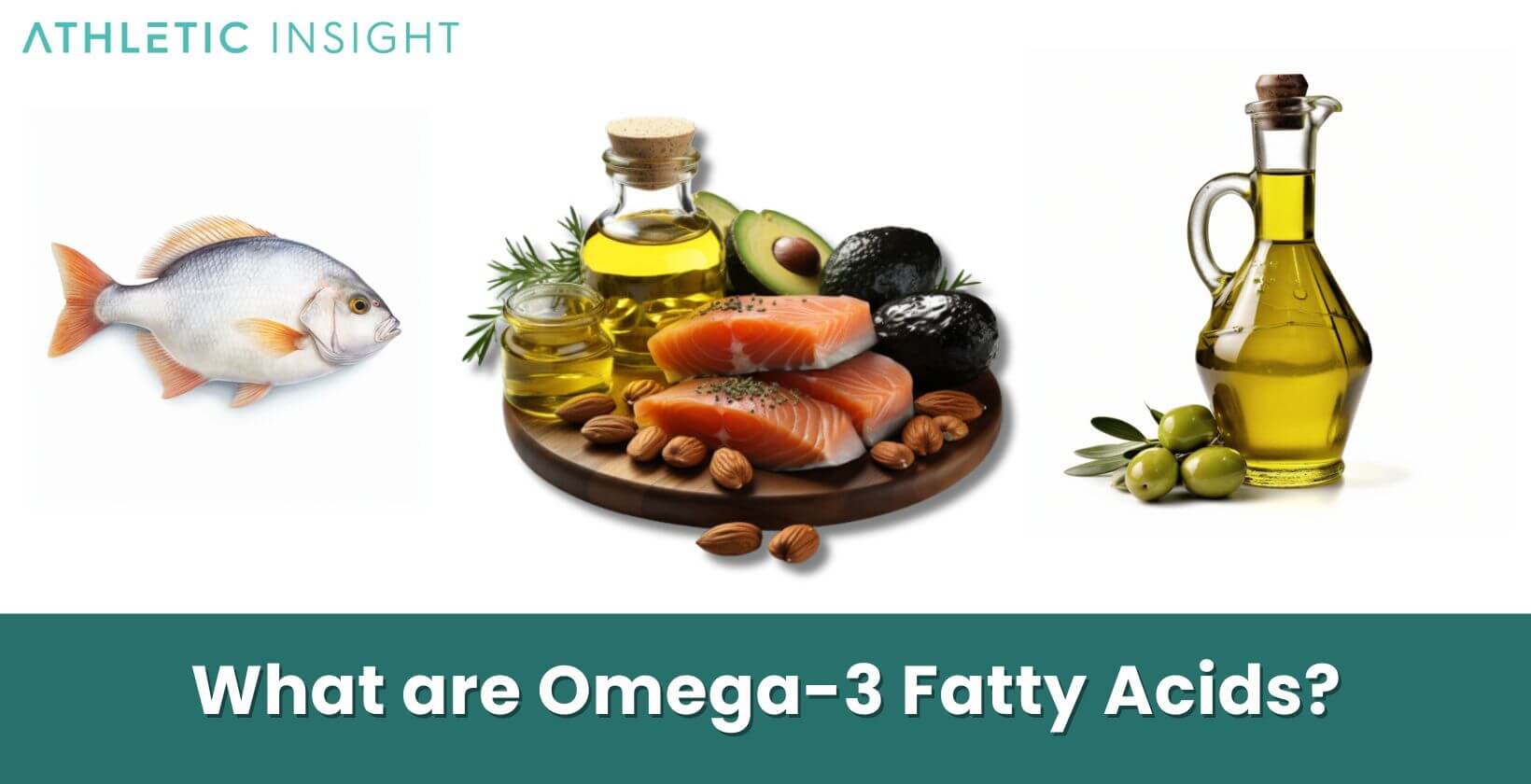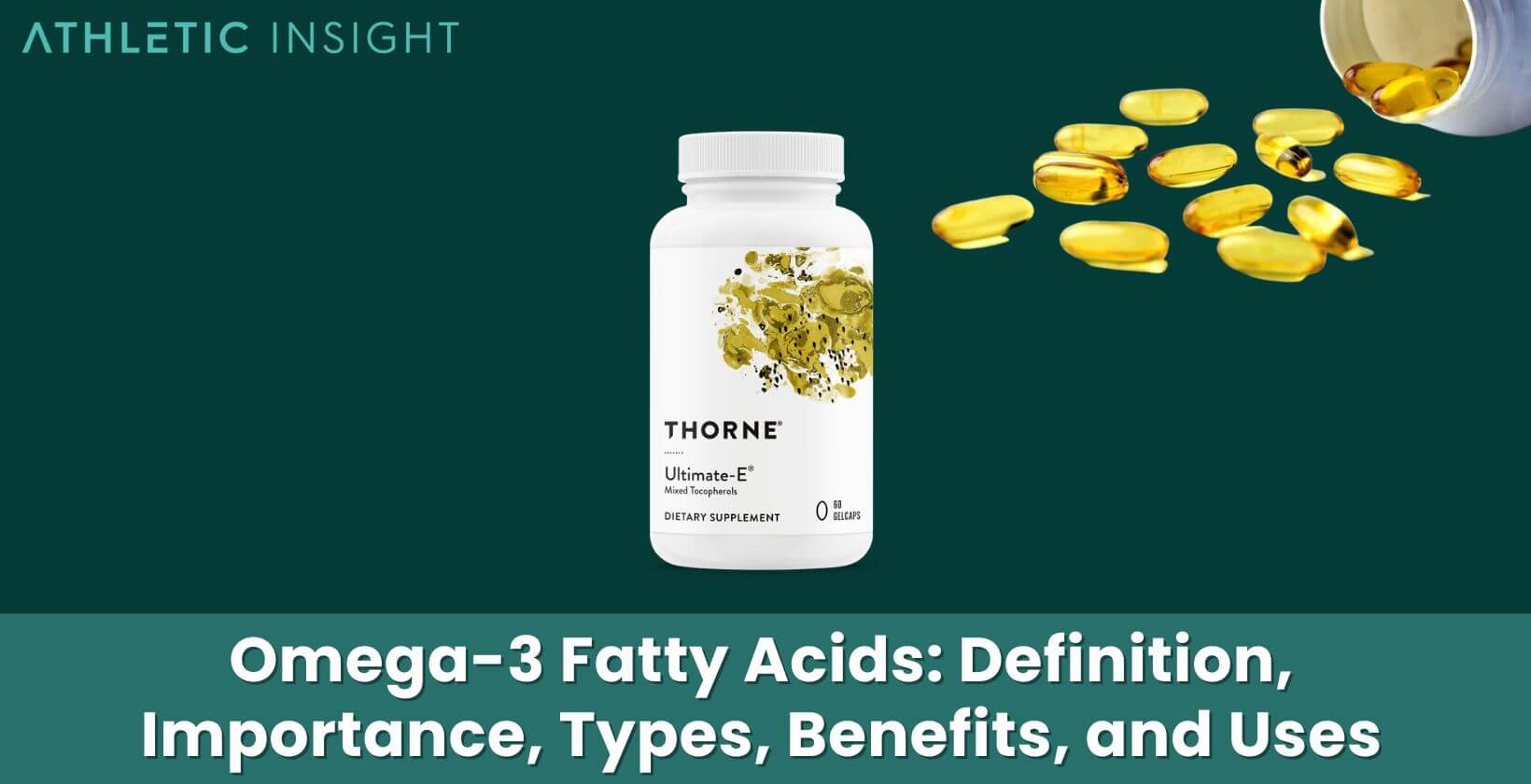Omega-3 fatty acids, a name often heard in health discussions, are essential nutrients that pack numerous benefits for the body and mind. When incorporated into daily diets, these fatty acids can redefine well-being, promoting optimal health. From preserving mental acuity, enriching skin health, to potentially combating critical illnesses, Omega-3s have gained popularity around the globe.
While many resort to supplementation, Omega-3 fatty acids can be consumed naturally through proper diet. If you are interested in learning of foods high in Omega-3, or just simply want to learn more about these fatty acids, this article is for you.
What are Omega-3 Fatty Acids?
Omega-3 fatty acids are polyunsaturated fats vital for maintaining overall health. Distinct in their molecular composition, they are indispensable, meaning the human body cannot produce them naturally. So, they must be sourced from the food we eat or through supplementation.

Are Omega-3 Fatty Acids considered essential fatty acids?
Yes, Omega-3 Fatty Acids are considered essential fatty acids due to the body’s inability to synthesize them. They are paramount for functions ranging from cellular development to inflammation moderation, necessitating their dietary intake.
Why are Omega-3 Fatty Acids essential to Nutrition?
Omega-3s are foundational for the body’s physiological and developmental processes. Integral to cell membrane structure, they also facilitate hormones responsible for diverse functions, from blood regulation to inflammatory responses. While omega-3s can be absorbed through supplementation, it is always recommended to consume them through proper nutrition and diet.
What are the Minerals found in Omega-3 Fatty Acids?
It’s pivotal to understand that omega-3 fatty acids themselves aren’t mineral reservoirs. Rather, foods rich in omega-3s, especially fish, can harbor minerals like selenium, calcium, and magnesium.
Are there Vitamins found in Omega-3 Fatty Acids?
No, omega-3s themselves don’t contain vitamins. Yet, foods like fish, known for abundant omega-3s, often boast vitamins like Vitamin D and B12, enhancing their nutritional profile.
What are the three primary Omega-3 Fatty Acids?
There are three primary omega-3s; ALA, DHA, EPA. Each, with its distinct properties, plays unique roles in human health, necessitating their adequate consumption.
- Alpha-Linolenic Acid (ALA)
- Docosahexaenoic Acid (DHA)
- Eicosapentaenoic Acid (EPA)
1. Alpha-Linolenic Acid (ALA)
Originating predominantly from plants, ALA is present in seeds like chia and flaxseed. The human body utilizes ALA as an energy source and can partially convert it to DHA and EPA, albeit at a lower efficiency.
2. Docosahexaenoic Acid (DHA)
Marine life, especially fish, is the primary DHA source. Revered for supporting brain health and vision, DHA’s significance is pronounced during early developmental stages and in maintaining cognitive function in adulthood.
3. Eicosapentaenoic Acid (EPA)
Also abundant in marine sources, EPA is esteemed for its anti-inflammatory properties. From supporting cardiovascular health to potentially mitigating mood disorders, EPA’s contributions to well-being are extensive.
What are the health benefits of Omega-3 Fatty Acids?
Omega-3 Fatty Acids promote cardiovascular health, potentially reduce ADHD symptoms in children, and combat inflammation. Their potential protective roles in conditions like autoimmune diseases further enhance their stature in health circles.
- Reduces inflammation
- Improves cardiovascular health
- Reduces ADHD symptoms
- Improved autoimmune response
What are the side effects of Omega-3 Fatty Acids?
While there are many benefits, omega-3s aren’t without potential drawbacks. Some individuals might experience digestive disruptions or an altered taste sensation. Excessive intake without supervision could also lead to blood thinning.
- Digestive issues
- Altered sense of taste
- Blood thinning
Who should take Omega-3 Fatty Acids?
Most will experience benefits with omega-3s, so just about everyone should take them. Those with cardiovascular concerns or cognitive health priorities might find them particularly beneficial. However, those on certain medications, especially blood thinners, should consult professionals before consumption.
How do Omega-3 Fatty Acids use in Sports Nutrition?
Sports enthusiasts often turn to omega-3s for their potential to boost recovery and mitigate inflammation. As athletic activities can exert strain, causing muscle soreness, omega-3s, particularly EPA, are known for their anti-inflammatory prowess when it comes to sports nutrition. By potentially curtailing inflammation, they can aid in hastening recovery, enabling athletes to resume training more swiftly.
Do Omega-3 Fatty Acids help improve Muscle Growth?
Yes, emerging research suggests that omega-3s stimulate muscle protein synthesis and foster muscle growth. Their anti-inflammatory properties can potentially reduce muscle damage post-exercise, promoting more efficient muscle repair and growth.
Do Omega-3 Fatty Acids help enhance Endurance?
Yes, Omega-3s are known to better oxygen delivery to muscles during intensive exercise, possibly augmenting endurance. Additionally, by potentially curbing inflammation, they might reduce fatigue onset, allowing athletes to sustain performance for extended durations.
What is the role of Omega-3 Fatty Acids in weight loss?
Omega-3s are potent allies in weight management. Their potential to increase metabolism can heighten calorie expenditure. Plus, they might foster a feeling of satiety post meals, potentially curbing excessive calorie intake. To experience weight loss benefits, integrating omega-3 rich foods or supplements with a balanced diet and exercise regimen is paramount.
How much is the suggested Omega-3 Fatty Acids per day?
For most adults, an intake of 250–500 mg combined EPA and DHA daily is often recommended. It’s pivotal to understand that needs can vary based on individual health profiles and goals. While this range is beneficial for general well-being, certain health conditions might necessitate different dosages. It’s imperative to seek expert guidance for personalized recommendations.
Is it okay to have Omega-3 Fatty Acids every day?
Yes, it’s typically safe and beneficial for most individuals to consume omega-3s daily. Regular intake can help maintain optimal blood levels, fostering better health outcomes. Yet, it’s crucial to adhere to recommended dosages and seek expert counsel, especially if integrating supplements.
What are the food sources of Omega-3 Fatty Acids?
Foods rich in omega-3s span from marine sources like fish to certain plant seeds, the spectrum is diverse. Foods like mackerel, salmon, flaxseeds, and walnuts are often celebrated as omega-3 powerhouses.
- Fish
- Seeds and Nuts
- Fortified Foods
- Plant Oils
- Omega-3 Supplement

1. Fish
Among omega-3 sources, fish stands supreme. Salmon, particularly, is a goldmine, with nearly 4,000 mg of DHA and EPA per serving. Besides these fatty acids, fish can also bolster diets with proteins and essential vitamins. While benefits are manifold, it’s pivotal to choose wild-caught over farmed variants for purity.
2. Seeds and Nuts
Seeds like flaxseeds and chia seeds are rich in ALA. A single tablespoon of flaxseeds boasts around 1,600 mg of ALA. Walnuts, too, are potent ALA sources. While they’re excellent omega-3 avenues, the human body’s ability to convert ALA to EPA and DHA is limited, making it essential to integrate diverse sources.
3. Fortified Foods
Modern markets offer foods fortified with omega-3s. From eggs to yogurts, these products have been enhanced with omega-3s to bolster their nutritional profile. A single serving can provide a substantial DHA and EPA amount, making them convenient sources, especially for those with dietary restrictions.
4. Plant Oils
Plant oils, particularly flaxseed, canola, and soybean oils, are treasure troves of ALA. For instance, a tablespoon of flaxseed oil can deliver about 7,000 mg of ALA. When incorporating these oils into meals, it’s key to remember that while they’re bounteous in ALA, the body’s conversion to DHA and EPA remains minimal. Still, they remain a vital source, especially for vegetarians and vegans.
5. Omega-3 Supplements
For those struggling to meet omega-3 quotas through foods, omega-3 supplements step in as viable options. Fish oil capsules are the most renowned, teeming with both DHA and EPA. It’s vital to ensure product purity and potency, steering clear of those tainted with harmful contaminants. Some might also consider algae-based supplements, particularly vegetarians, as they predominantly contain DHA.
Does avocado have Omega-3 Fatty Acids?
Yes, avocados do contain omega-3 fatty acids, specifically ALA. While they’re more renowned for their high monounsaturated fat content, avocados provide a modest ALA amount. One avocado can offer around 160 mg of ALA. Although not as potent as fish or flaxseeds, avocados still serve as a valuable supplementary omega-3 source, coupled with an array of other nutrients.
What is an example of a Diet Plan that includes Omega-3 Fatty Acids?
A balanced diet plan prioritizing omega-3s may start with a breakfast of chia seed pudding, sweetened naturally and adorned with berries. Lunch could be a vibrant salad starring greens, flaxseeds, walnuts, and a hearty piece of grilled salmon. Snacking on walnuts or omega-3 fortified eggs can keep hunger at bay. For dinner, consider a dish like grilled mackerel accompanied by a side of roasted vegetables drizzled with canola oil.
Do Omega-3 Fatty Acids reduce belly fat?
Yes, there’s evidence suggesting that omega-3s can assist in reducing visceral fat, the deep belly fat linked with various health ailments. They might achieve this by improving metabolic health and reducing inflammation. Still, while omega-3s can support belly fat reduction, it’s pivotal to pair them with a balanced diet and consistent physical activity for maximum benefits.



